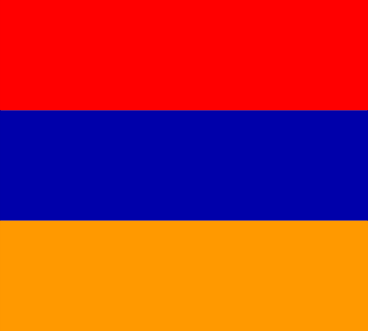Mr. Speaker, today we mark the 90th anniversary of the beginning of the Armenian Genocide. Every year we participate in this solemn commemoration but this year it has a special significance.
For the families of the victims and the survivors, the horrors of that bygone era remain so painful that it is hard to believe how much time has passed. The passage of years has not dimmed the memory or eased the grief. Not a relative or friend has been forgotten, nor have fond memories of native cities faded away.
Moreover, no accounting for mass murder has been made. Though many governments and legislative bodies around the world have recognized the Armenian Genocide, the Turkish Government consistently refuses to acknowledge what happened. For Armenians everywhere, Turkey’s policy of aggressive denial sharpens the feeling of loss, embittering the lives of those who miraculously survived.
Today, those of us without Armenian blood share the sorrow of Armenians everywhere. I had the privilege in September 2000 of chairing hearings on the Armenian Genocide in the Subcommittee on International Operations and Human Rights of the International Relations Committee. The reading I have done over the years, which has included detailed descriptions of the atrocities, shock me. But, I am resolved to speak about this issue, loudly and often.
The Armenian Genocide has significance for all of us. It created a monstrous precedent which launched a century of genocides. In numerous countries and cultures, an ethnic group that controlled the state has used its instruments of coercion to slaughter members of a minority group, religion or class. It is enough to recall Adolf Hitler’s smug remark, “Who remembers the Armenians?” to grasp the universality of what happened to the Armenians.
Much has changed in the world since the mass, planned murder in 1915–two world wars, the fall of the Ottoman, Habsburg and Romanov Empires, the rise of the American superpower and most recently, the fall of the Soviet Union. One would have thought that we would have grown wiser over the years. Alas, we have not learned the appropriate lessons from the 20th century’s first genocide. Just a few years after Rwanda, at this very moment, another genocide is taking place in Darfur. Yet, instead of mounting a united response, the international community has waffled or slithered away from responsibility, as hundreds of thousands are slaughtered.
The record of man’s inhumanity to man is awful enough to produce a feeling of resignation. But we must fight that tendency. We must continue to remind the world of what occurred in 1915 and keep calling on Turkey to won up. We must not restrain ourselves from speaking of the Armenian Genocide. Along with many of my colleagues, I urge President Bush to speak the truth to Ankara, which needs to come to terms with its own past.
As this somber time, I want to note one optimistic point: OSCE negotiators are guardedly hopeful about the prospects of resolving the Nagorno-Karabakh conflict. True, we have experienced such moments before and should not get our hopes up. Still, I am encouraged to hear that there is at least some reason for hope. We all pray for a peaceful solution to this conflict, which has caused over 30,000 deaths and many more casualties. Next year, when we once again commemorate the Genocide of the Armenians, I hope their descendants will be living in peace with their neighbors, building a democratic, prosperous country that will be a light unto the world.





